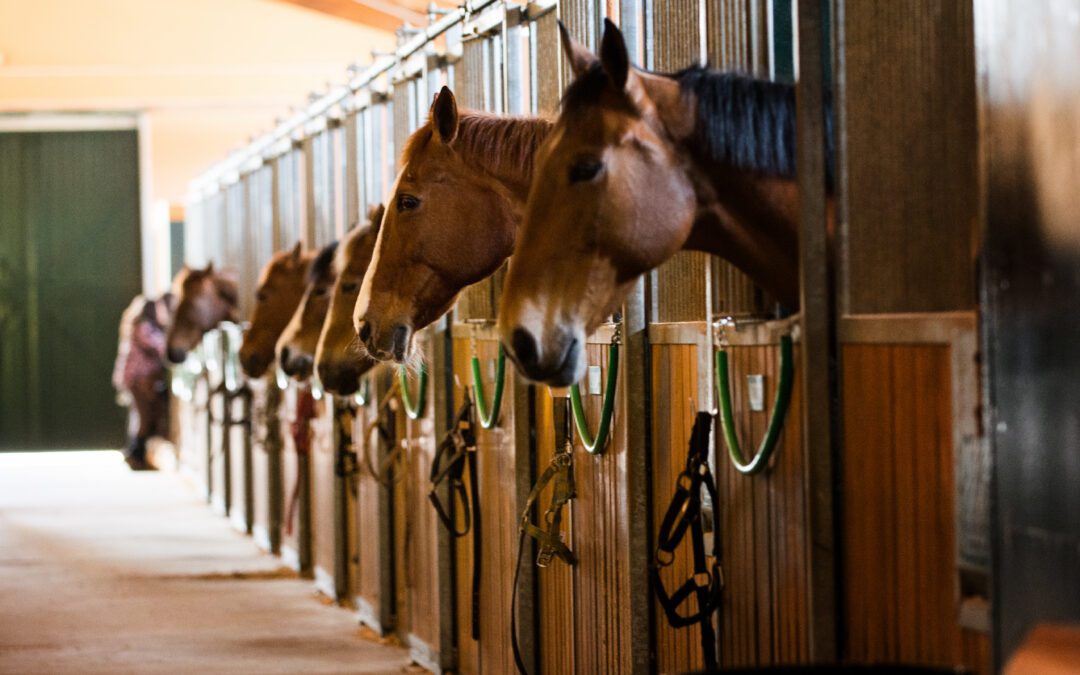Running a successful equine business can be both a dream and a significant investment. Whether you’re a stable owner, riding school operator, or a breeder, finding the right commercial property is essential for the well-being of your equine operation. However, navigating the legal aspects of leasing commercial property can be a challenging endeavor. In order to avoid pitfalls and protect your interests, there are various legal dos and don’ts of the property leasing process for your equine business. Let’s start with the do’s.
The Do’s of Leasing Property for Your Equine Operation
- It is critical to define your requirements and needs clearly. Before you start the leasing process, make sure you have a clear understanding of your business’s specific requirements. This includes the property size, facilities, and any zoning requirements for equine activities. Create a comprehensive list of your needs to present when meeting with potential landlords.
- It is essential to conduct comprehensive due diligence before signing a lease agreement, especially when it comes to horse properties. This includes researching the property, its history, and its compliance with local regulations. It is important to ensure that the property is properly zoned for equine activities and that it meets all safety and animal welfare standards. By conducting due diligence, you can avoid any potential risks and ensure a safe and secure environment for both you and your horses.
- When reviewing a lease, it is important to carefully consider all the terms and conditions outlined in the agreement, and negotiate any clauses that may be unfavorable or unclear. Some of the key terms that can be negotiated include the duration of the lease, the cost of rent, any use restrictions, insurance requirements, property maintenance responsibilities, and repair obligations. By negotiating these terms, you can ensure that you are getting a fair and reasonable deal that meets your needs and protects your interests. For instance, if you need to use the property for a specific purpose, you may need to negotiate use restrictions that allow you to carry out your activities without any legal issues. Similarly, negotiating the cost of rent can help you to avoid overpaying for the property, while negotiating repair obligations can ensure that you are not held liable for damages that were not caused by you.
- It’s important to carefully review the termination and renewal clauses of your lease agreement. Pay close attention to these clauses as they determine how and when your lease can be terminated and whether you have the option to renew it. Understanding these details is crucial for the long-term planning, security, and prosperity of your business.
The Don’ts of Leasing Property for Your Equine Business
- Never assume zoning compliance. Even if the property has been used for equine activities in the past, it doesn’t necessarily mean that it is legally zoned for your specific use. To avoid any legal issues in the future, it’s essential to verify the zoning regulations with the local authorities.
- Don’t skip an inspection. It is critical to inspect the property thoroughly before signing the lease. Ensure that the property meets your safety and animal welfare standards by having all of the necessary inspections performed by professionals.
- Never rush into a leasing agreement. Leasing a commercial property is a significant commitment and investment. Don’t rush into agreements without fully understanding all of the terms and their implications. Take your time to ask questions, negotiate, and consult your attorney.
- Do not overlook liabilities. As an equine business owner, it is important not to overlook the potential liabilities that come with the business. These risks can include injuries to riders or horses, property damage, or other unforeseen incidents. Therefore, it is crucial to address liability issues in your lease agreement in a clear and concise manner. This can help to minimize the risk of legal disputes and financial losses in the event of an accident or injury. By outlining the responsibilities and expectations of all parties involved, you can ensure that your equine business operates safely and smoothly while protecting yourself and your assets.
- Do not skip legal counsel. One of the most common mistakes equine business owners make is not seeking legal advice when leasing their commercial property. Equine businesses come with their unique legal considerations, so having an experienced equine attorney on your side is invaluable.
Contact Clayborne & Wagner’s Equine Team for a Lease Consultation
Leasing commercial property for equine businesses requires a meticulous approach to protect your interests and ensure the success of your operation. The guidance of a qualified equine attorney is indispensable in navigating the complexities of commercial property leasing in the equine industry. At Clayborne and Wagner’s Equine Law Division, we’re here to provide expert legal counsel and support for your equine business needs. Contact us for a free 30-minute consultation.

